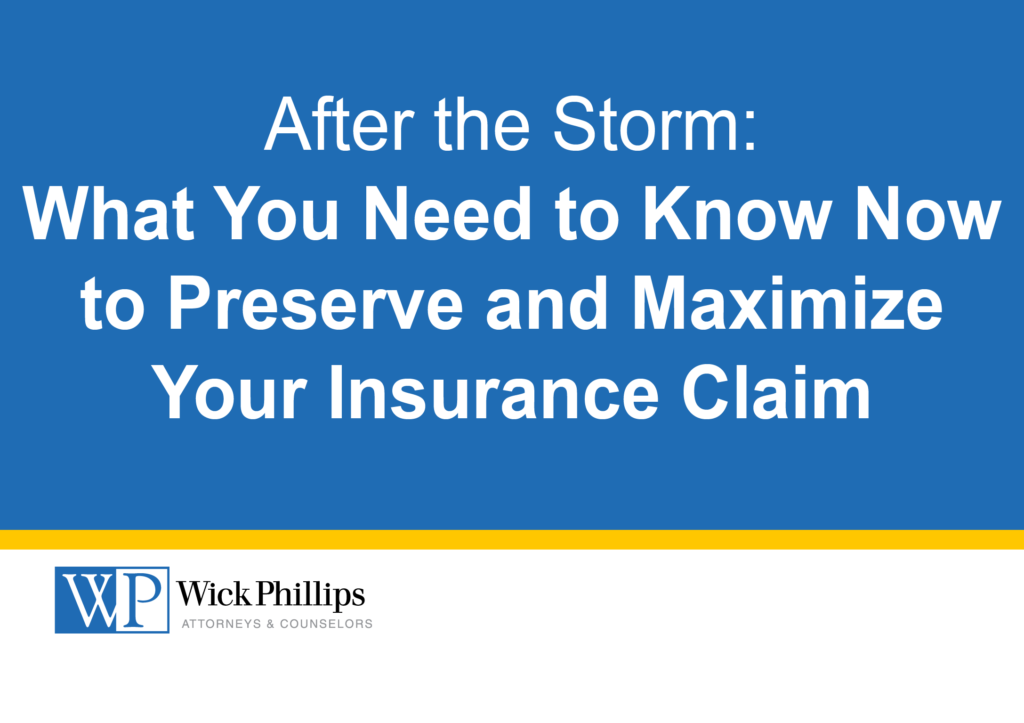
As insured businesses and individuals grapple with the massive property damage and income losses resulting from Hurricane Harvey, keep these basic points in mind to preserve and maximize your insurance recovery:
1. Know your insurance coverage. Be aware of all potential coverages that are available to you. Property policies vary, but they can include protection for many types of costs, such as: physical damage, loss of use, business interruption, contingent business interruption, debris removal, security costs, consultant costs, soft costs, code upgrades, etc.
2. Promptly notify your insurance carrier. Be sure to notify all applicable carriers promptly and take care to comply with each policy’s specific notice requirements.
3. Understand and satisfy other policy timing requirements. Familiarize yourself with any other timing requirements set out in the policy, such as any Proof of Loss deadline. If you are not able to reasonably satisfy a deadline, communicate with your carrier beforehand and request a written extension.
4. Involve your insurance carrier from the outset. Whenever possible, include your carrier in your repair/replacement efforts and obtain its approval beforehand. Be aware that your carrier may have rights to salvage certain property.
5. Keep detailed records. Track and document all costs (internal and external) in writing. Summarize and organize the records by category where possible and include all back-up. Submit the documentation of your costs to the carrier on a continual basis. Keep a clear record of what you send to your carrier.
6. Keep an open line of communication. Establish a rapport with your carrier. Be responsive to reasonable requests for information. If an information request seems out of line, try to address that with the carrier on the front end.
7. Properly prepare your Business Interruption/Extra Expense claim. These claims typically involve large dollar amounts and require assistance from professionals who are experienced in this specific area. Understanding the policy and presenting the claim effectively from the start will be key to maximizing these coverages and expediting payment.
8. Examine denials or reductions of your claim. If your carrier denies your claim in whole or in part, enforce your right to a written denial that includes the carrier’s explanation. If you question the carrier’s denial or reduction of your claim, consider involving coverage counsel to analyze the carrier’s position.
About Wick Phillips’ Insurance Coverage Practice
The attorneys in Wick Phillips’ Insurance Coverage Practice have decades of experience representing corporate policyholder clients in major insurance coverage matters. Whether the loss is a devastating natural disaster, a major catastrophe, or bet‐the‐company litigation, our insurance specialists advise on every step of the claims process and dispute resolution with insurance carriers. To learn more about the practice, click here.
Contact
Erika Bright, Partner/Head of Insurance Coverage Practice
214.740.4050
erika.bright@wickphillips.com
Charles C. Keeble, Jr.
214.740.4018
charles.keeble@wickphillips.com
Noah Nadler
214.740.4044
noah.nadler@wickphillips.com





